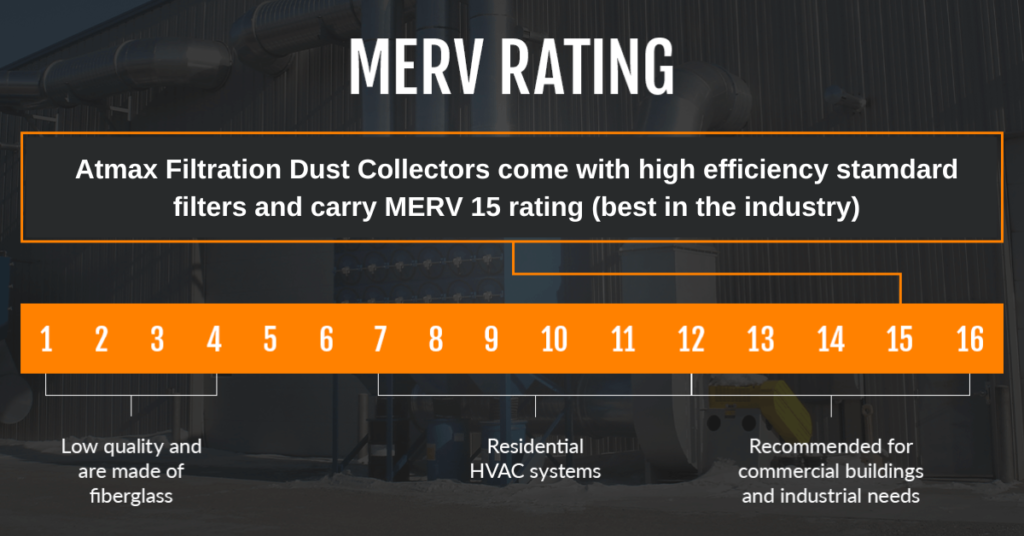Filters play a crucial role in the functionality of your dust collection system. Choosing the incorrect filter type can lead to an underperforming dust collector, highlighting the importance of selecting the right filter for the job.
When evaluating dust collector filters, you’ll encounter the term “MERV” rating. This rating is critical not only for industrial applications but also for residential use. In this discussion, we will explore what MERV stands for, its significance as a measurement, and how to choose the right filter for your specific requirements.
What is a MERV Rating?
The Minimum Efficiency Reporting Value, or MERV, rates the overall effectiveness of air filters on a scale from 1 to 16. This rating indicates the filter’s capacity to capture small particles across commercial and residential environments.
Developed in 1987 by the American Society of Heating, Refrigerating and Air-Conditioning Engineers (ASHRAE), the MERV rating system assigns a value to each filter, representing the minimum percentage of particles it will capture.
Filter efficiency is evaluated through six dust loads ranging from .3 to 10 microns. A higher MERV rating signifies superior performance. Beyond MERV 16, High-Efficiency Particulate Air filters, or HEPA filters, trap at least 99.97% of airborne particles as small as .3 microns, according to the U.S. Department of Energy.
Why is the MERV Rating Important?
For manufacturers and consumers, using the highest feasible MERV rating is vital to address specific needs and effectively trap sub-micron particulates. A higher MERV rating results in finer filtration, allowing fewer dust particles and other airborne contaminants to pass through.
The ASHRAE 52.2 test method provides the minimum efficiency value for filters. However, once in actual use and coated with particulates, filters generally perform at efficiencies higher than those indicated by initial tests.
MERV Ratings for Residential and Commercial Use
Residential HVAC systems commonly use filters rated between MERV 7 and 12. Although higher-rated filters capture more particles, they could restrict air flow, potentially increasing energy costs and placing more strain on the HVAC system.
Conversely, commercial settings, particularly industries such as woodworking or welding, benefit from higher-rated MERV 13 to 16 filters, which are capable of removing more hazardous particulates, including COVID-19 particles, thus ensuring a safer workplace environment.
Maximizing Air Filtration
At Atmax Filtration Dust Collectors, our systems are equipped with high-efficiency Nano-Elite OEM replacement filters rated MERV 15. These filters excel at capturing fine dust, smoke, and fumes, removing 99.9% of particulates from the airstream. This effectively cleans the air, which can then be recirculated within the facility or vented outside.
Remember, regular cleaning and replacement of air filters are essential for maintaining optimal functionality, regardless of whether they are used in residential or commercial applications. Depending on the filter’s usage and application, more frequent maintenance may be necessary. Our experts are ready to assist you in making the best choices for your air filtration needs.
Interested in learning more about air filter MERV ratings? Contact us today or request a quote.

